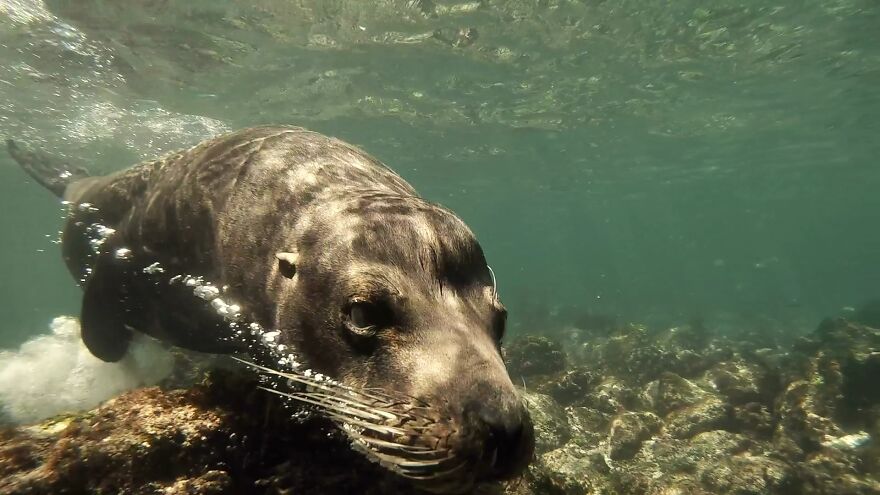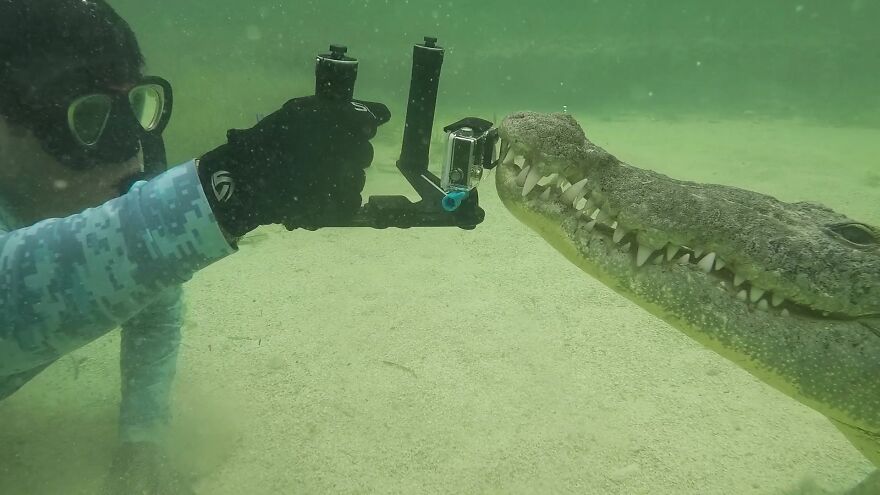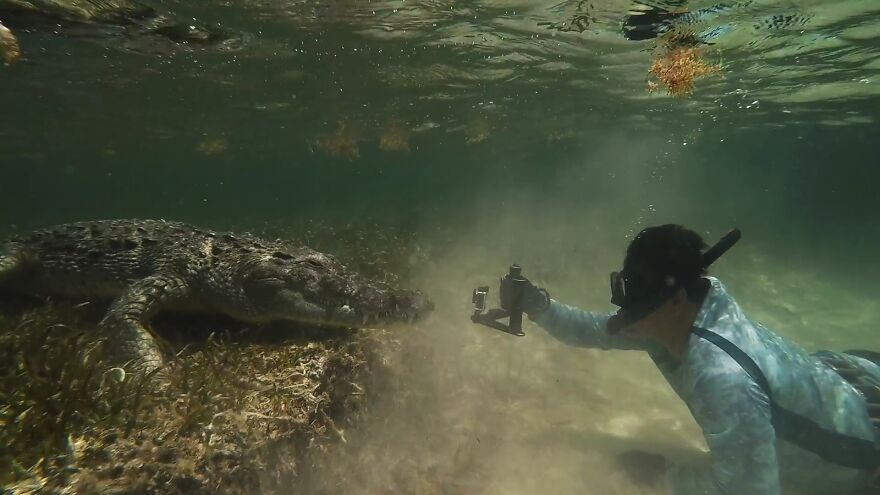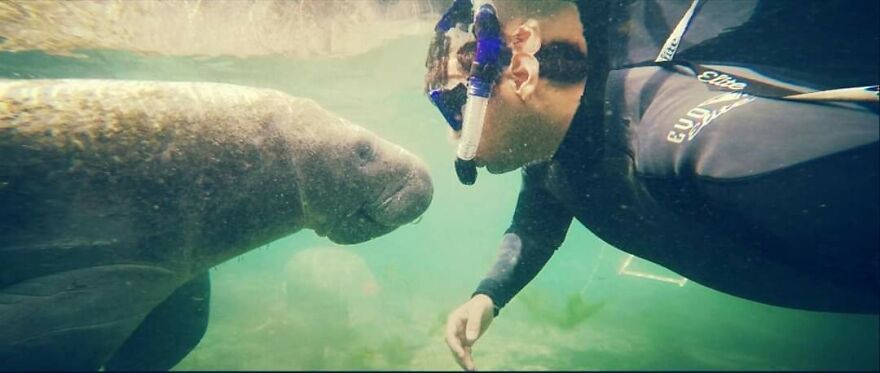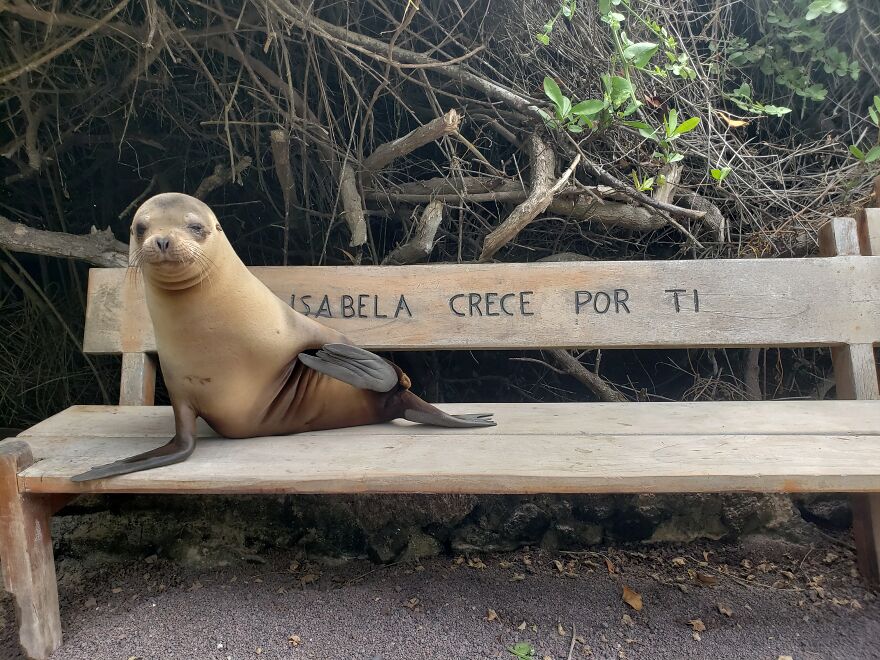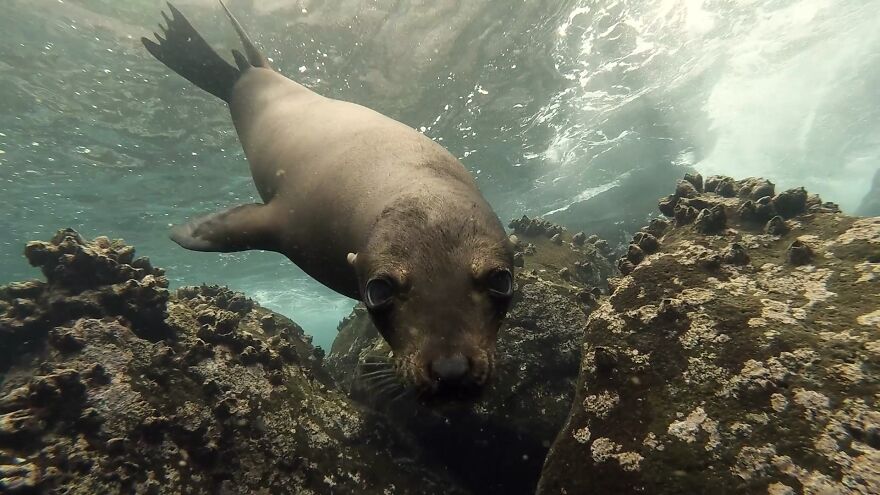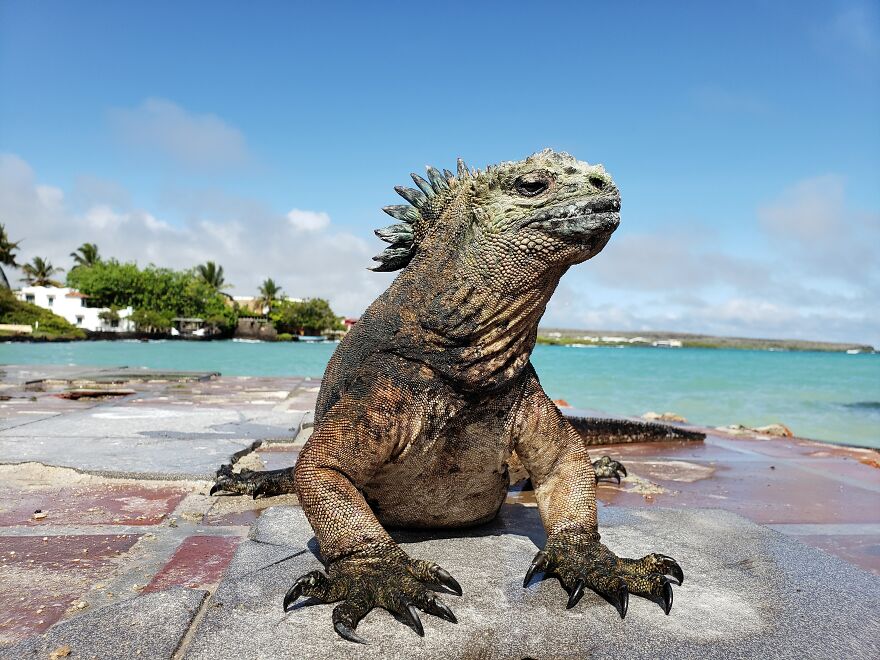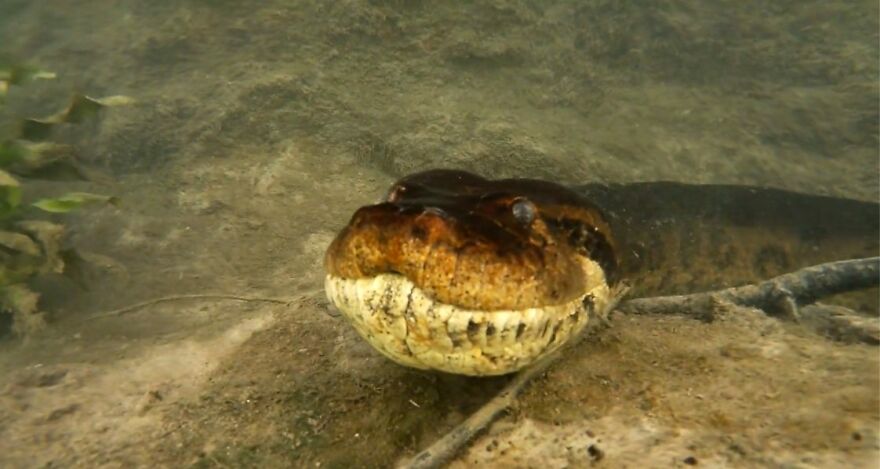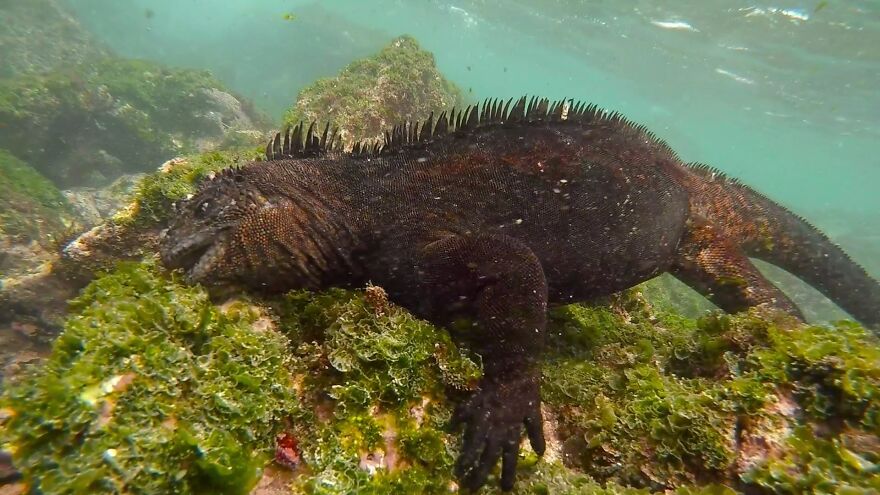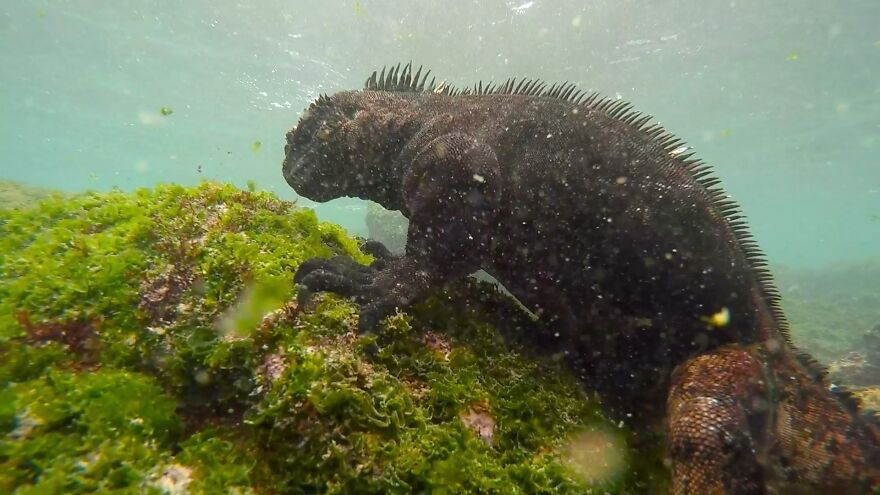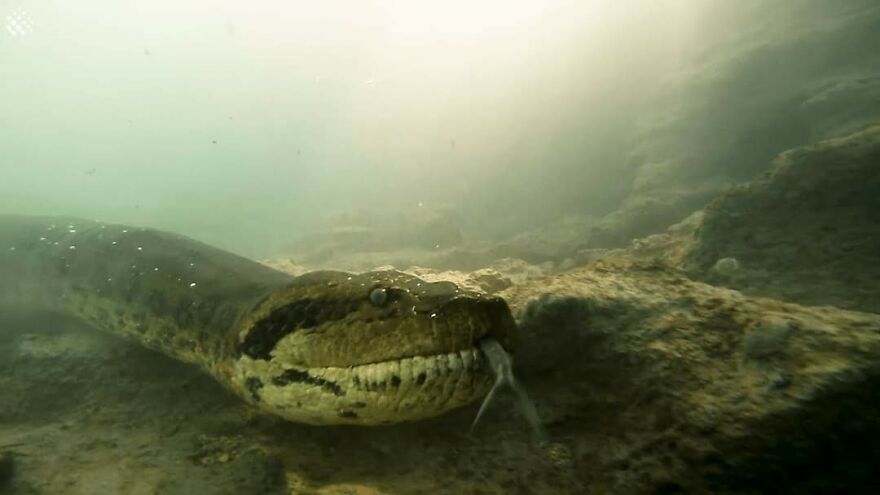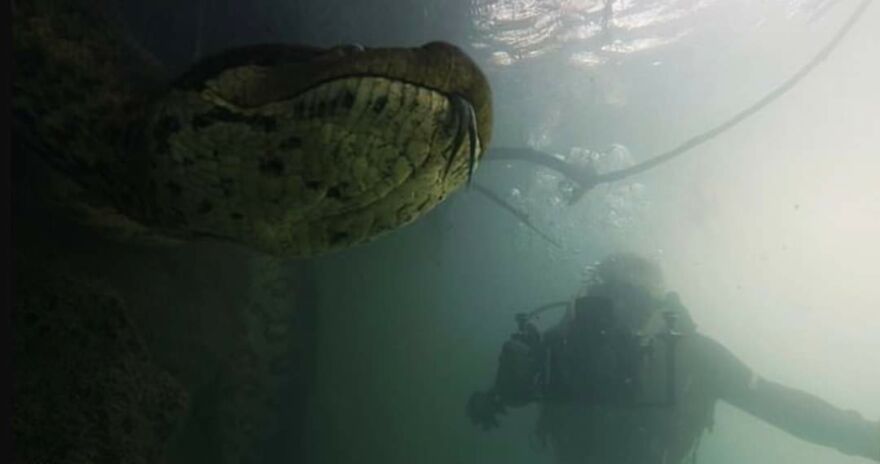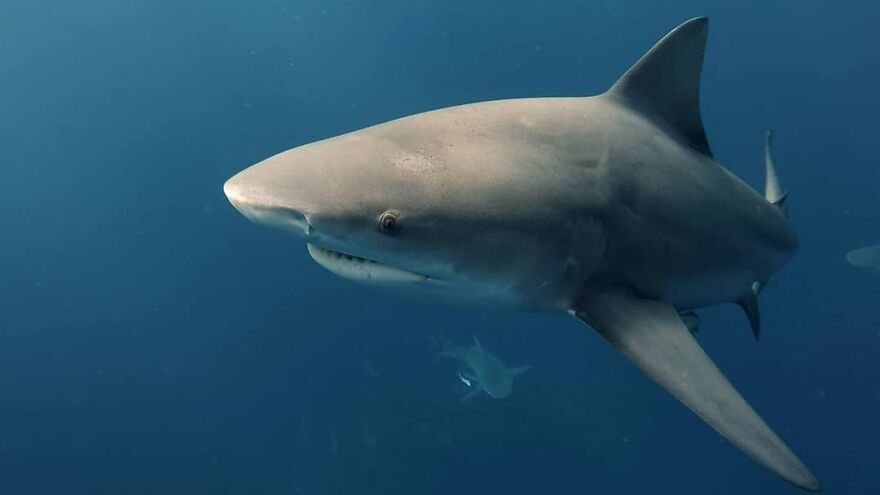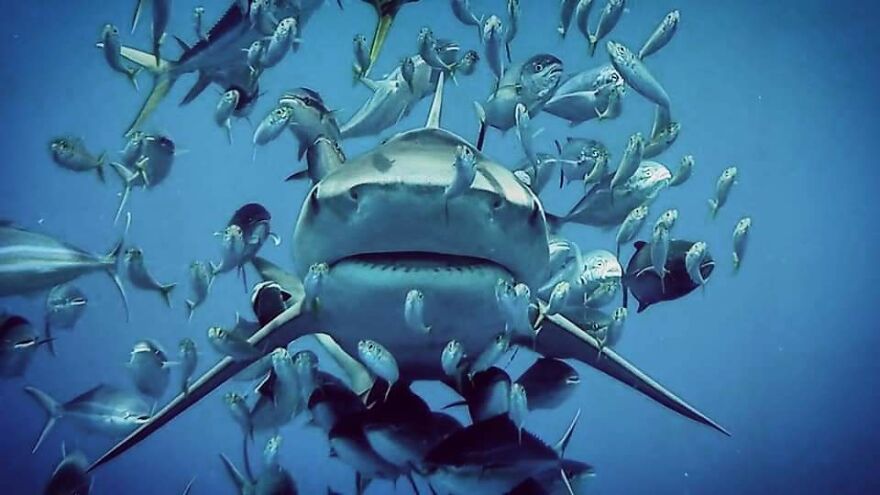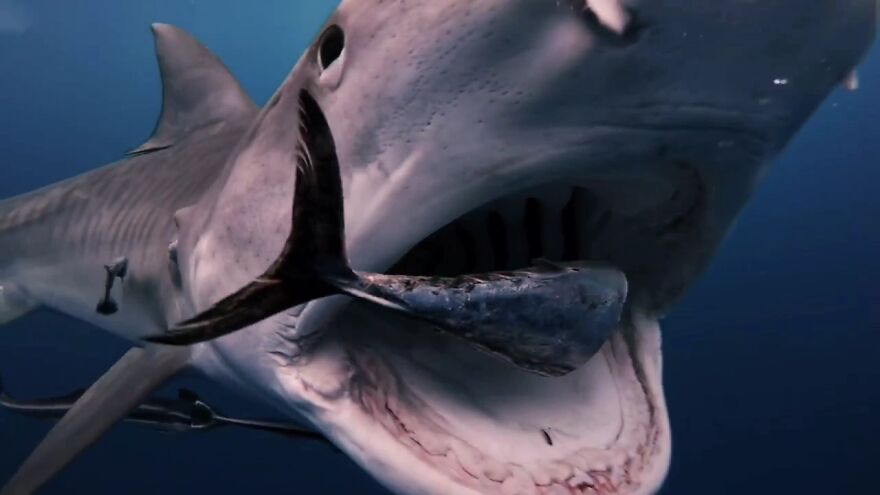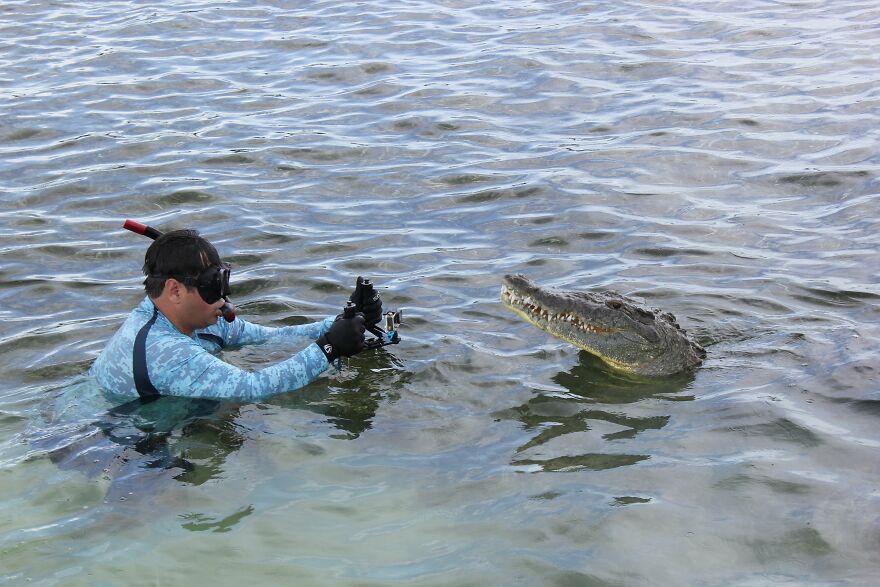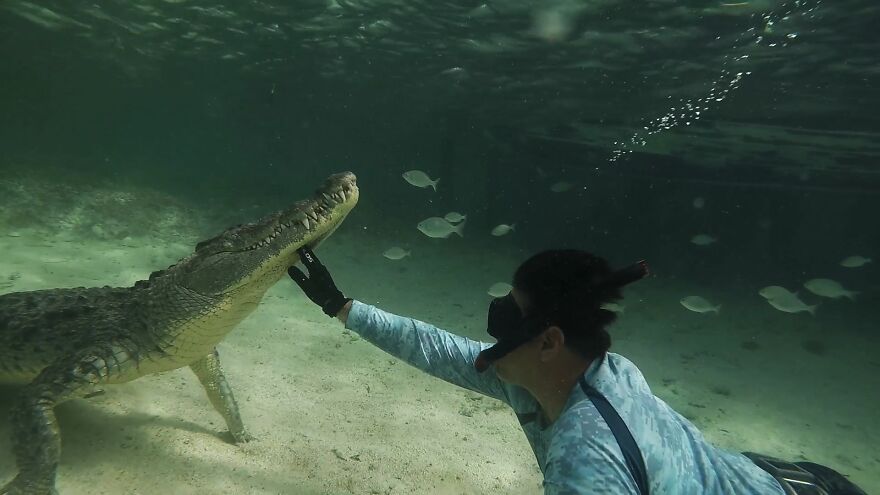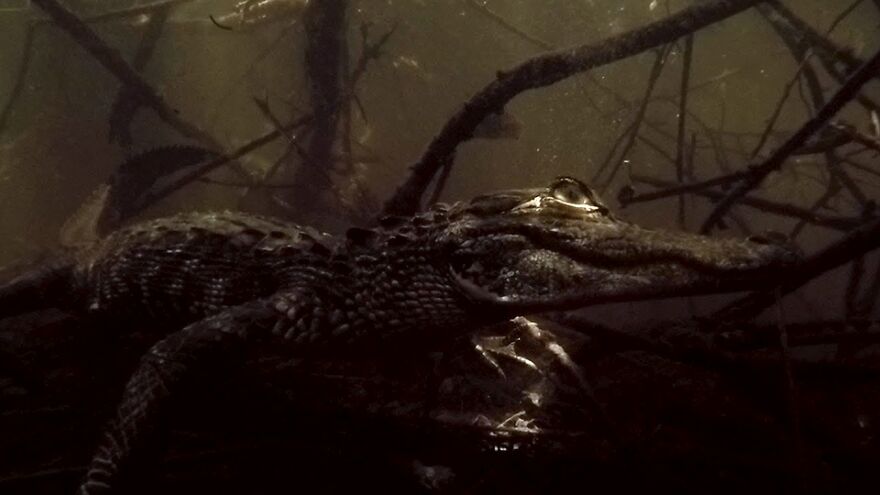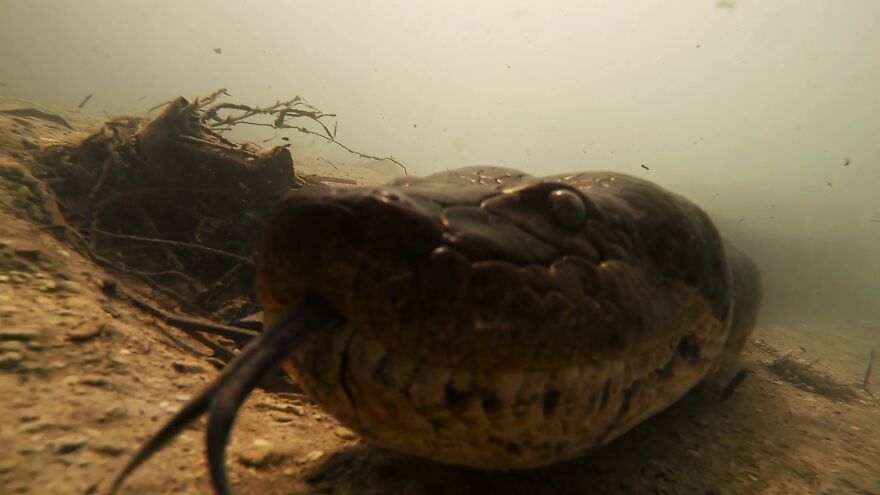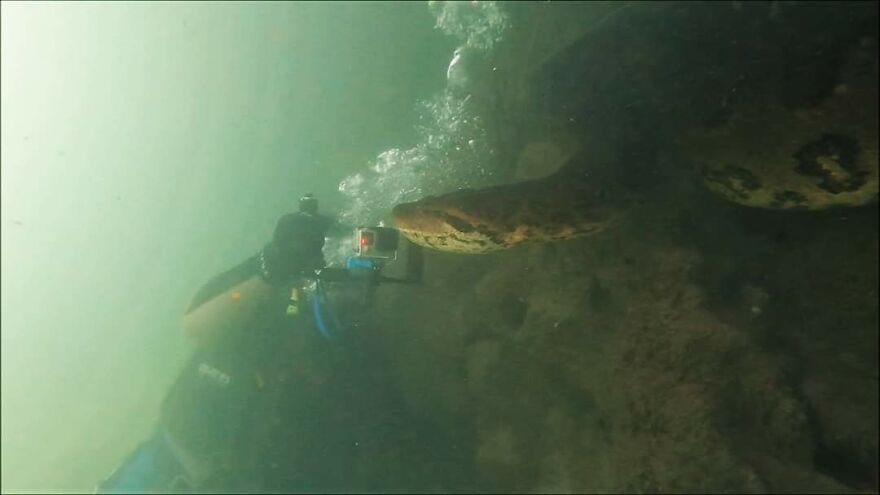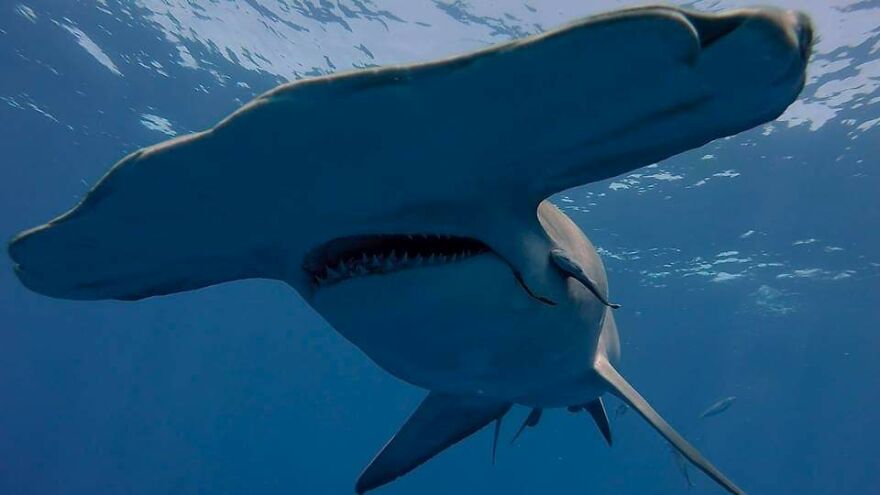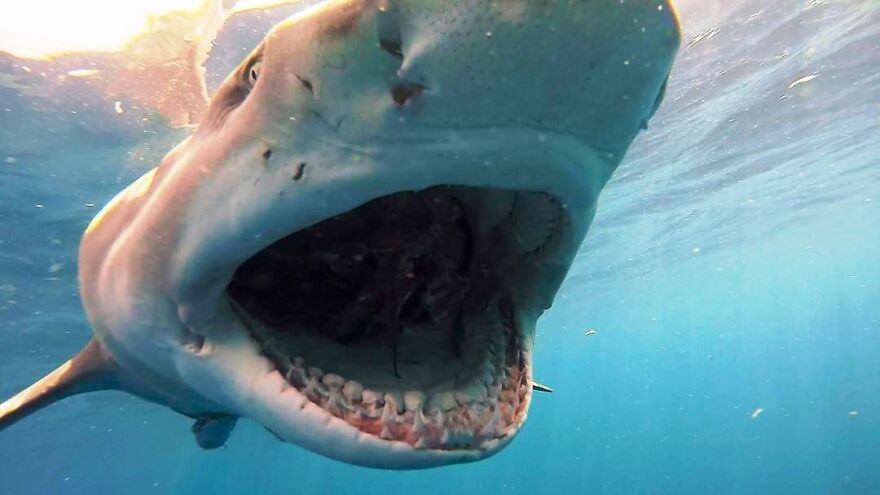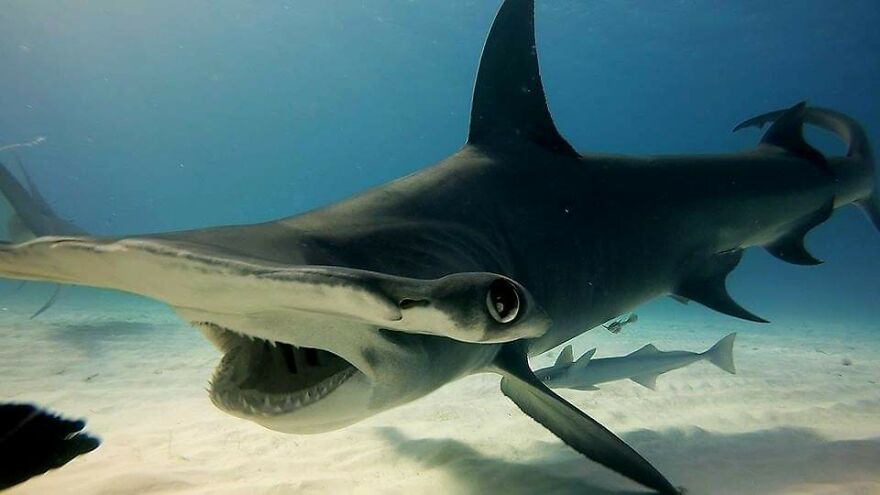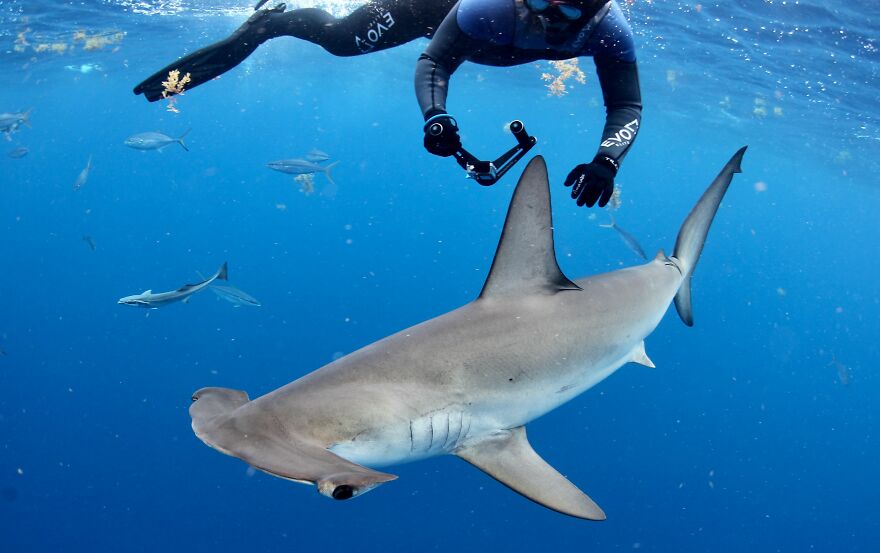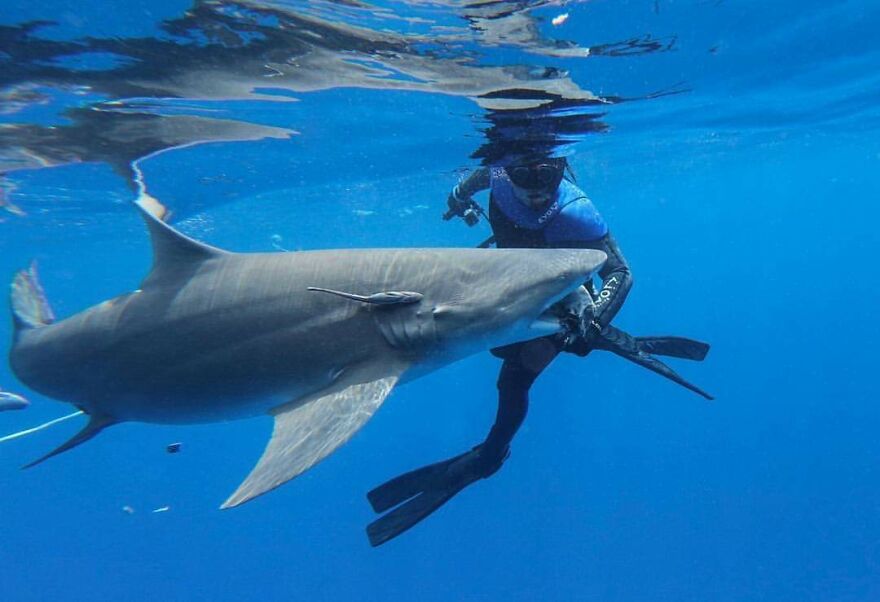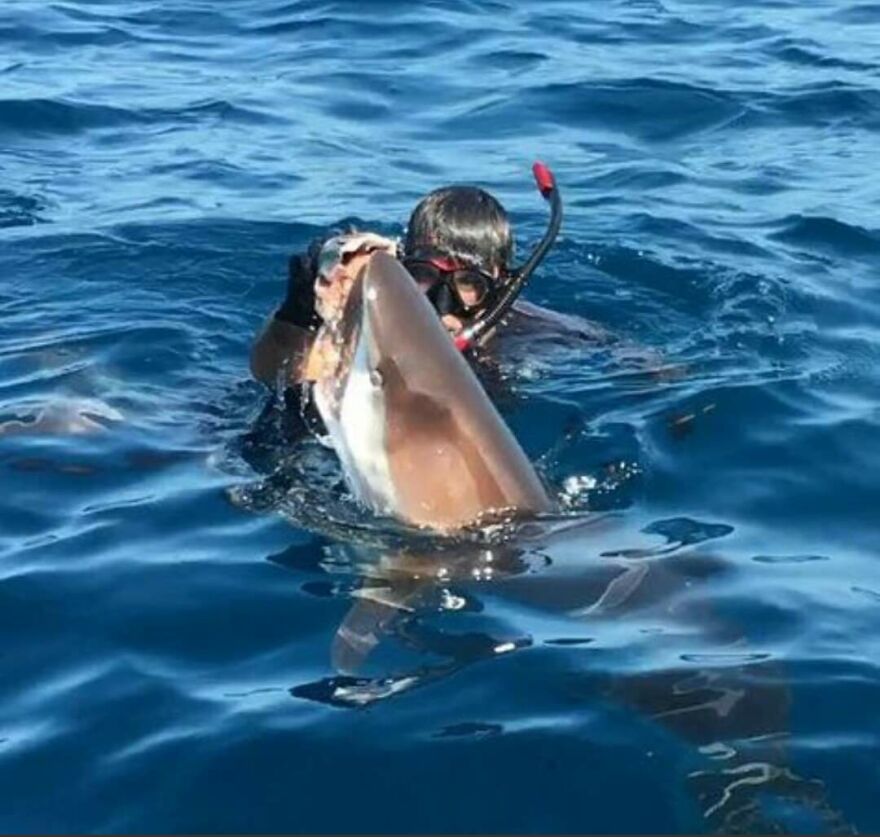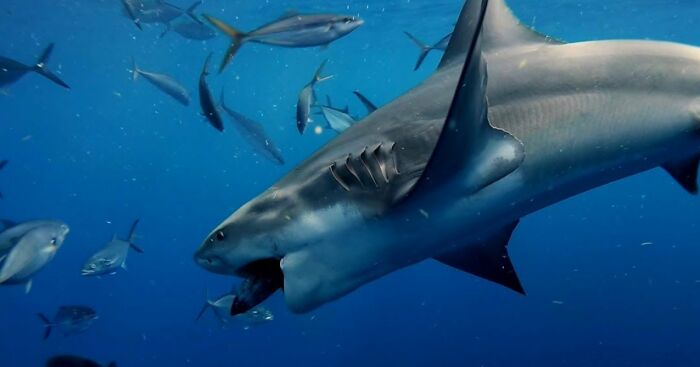
777views
I Am An Underwater Enthusiast And Videographer, And Here Are Some Of The Closest Moments I Had With Apex Predators
My name is Bartolomeo Bove, I am a professional shark diver, divemaster and underwater videographer. I am Italian and I live in Florida.
I make underwater videos with aquatic animals, especially apex predators such as sharks, alligators, crocodiles and anacondas. I have a YouTube Channel where I upload them, besides uploading them on my other social media platforms.
More info: Instagram | youtube.com
This post may include affiliate links.
During every dive, I feel the same astonishment and emotion as the clients, who perhaps see a shark up close for the first time, especially when we encounter an unexpected species, because every dive is different from the others. Personally, finding myself swimming with the sharks in the same environment gives me a feeling both of peace and excitement, and it gives me great satisfaction when I succeed in capturing with my camera a particular shot that I had in mind.
In addition to the dives with the sharks, I broadened in the last years my range of interest toward the wildlife species to film by traveling to different parts of the world where I had the opportunity to be face to-face with extremely fascinating aquatic creatures. I have traveled to the Galapagos Islands, a real paradise for nature and dive lovers, with the main purpose to film the marine iguanas feeding underwater and the playful sea lions.
As a marine life enthusiast and underwater videographer Galapagos is one of those places I could not have missed. Before going there, I was told many times by fellow divers that after the experience of diving there, diving somewhere else would not have been the same. And they were right.
I traveled to Brazil, and I filmed in a river a giant anaconda 23 foot in length and with an approximate weight between 200 and 250 lbs. A female green anaconda, the biggest of the 4 species of anacondas. Only female anacondas are so huge in size; the male individuals reach the length of about 3 or 4 meters and are way less heavy.
In fact, the goal of my expedition was to find a huge female anaconda, just like the one I encountered and filmed. With a girth in the central part of the body of about 12 inches, when the anaconda passed by me underwater swimming sinuously on the bottom of the river, I could really get a true perception of its power.
As a wildlife enthusiast, Florida is the place to be, not only for the ocean. The numerous rivers, streams, and bodies of water offer incredible opportunities for someone like myself who enjoys exploring and filming the underwater world, from colorful fish to manatees.
And then there is the swamp, a somewhat eerie and wild environment where diving in it means submerging yourself in a primitive world. I have to admit that free diving in the Florida swamp is one of my favorite activities. So sometimes I like to dive into the underwater jungle to film the alligators, really fascinating creatures, equipped only with mask, fins, and snorkel, and of course with my camera.
Winter is the ideal time to do such activity because cold weather makes them calmer and slow down. To film underwater in the swamp, where the visibility is not ideal, as I got to dive with caution, approaching very slowly once spotted the alligator, paying attention not to scare it running the risk of making it run away. When you are in the alligator underwater kingdom it is very important to swim unnoticed as much as you can, avoiding sudden movements in the water, respecting the animal, and not annoying it. It is important to mention that although alligators are apex predators and highly unpredictable, the size of their natural prey is usually smaller than the size of a human being.
I know a lot of people don't like snakes, but you have to respect an animal with no legs that can be called an apex predator.
Even if I know that in the South Florida swamp, there are also crocodiles, I have never encountered one. So I have planned a trip to Banco Chinchorro in Mexico to dive with the American crocodiles.
Banco Chinchorro, located 22 miles (35 kilometers) off the south-eastern coast of the State of Quintana Roo in Mexico, is the largest atoll reef of the northern hemisphere, Biosphere Reserve and temporary residence of a small group of fishermen during lobster season.
Banco Chinchorro is also home to an estimated population of about 500 American Crocodiles (Crocodylus Acutus), the densest congregation of American crocodiles in the world, the most genetically pure crocodiles of this species due to the geographic isolation. These crocodiles are powerful and highly intelligent predators and each individual has their own personality with well-defined characteristics.
The crocodiles are extraordinary creatures, and being in their presence, so close, in their natural domain, was truly breathtaking experience for me. For those who are wondering why they don’t attack me and instead let me approach them undisturbed and even touch them, the answer is simply that they could attack at any moment if they had the opportunity.
Even though most of these crocodiles are much larger than us humans, sometimes by a wide margin, in general, they view an adult human as "too big" and less convenient prey than the creatures they often eat, which are much smaller in size, such as fish, birds, and crustaceans.
That being said, crocodiles certainly don’t disdain larger prey and may also attack humans should the opportunity arise. The “safest” way to approach these crocodiles is directly in front of them (due to their limited visual range,) and at their level or below them in the water column. Straight in front of them because usually when they strike, they snap to the side, and do not lunge forward with a bite. They are highly intelligent animals, and they are constantly observing you. Their eyes are always following your movements in the water.
Sometimes happens that even if they are approached from the front, they slowly but steadily position themselves on your side, ready to take advantage of any possible moment of distraction to assess the attack. Never take your eyes off the crocodile if you swim with them!!
I have never had an accident, and I have never used any kind of protection in doing these activities but make no mistake, this does not mean that I am reckless. It is important to mention that I, and all the people I know, who are involved in this kind of activities, are professionals in the field of activities related to nature and to the interaction with apex predators.
Each of these animals has different behavior and therefore the approach is taken to get close to them in the water is different. In addition, to realize my activities, I always rely on the collaboration of local guides, who know very well the particular characteristics of the places and wildlife.

 Dark Mode
Dark Mode  No fees, cancel anytime
No fees, cancel anytime 




